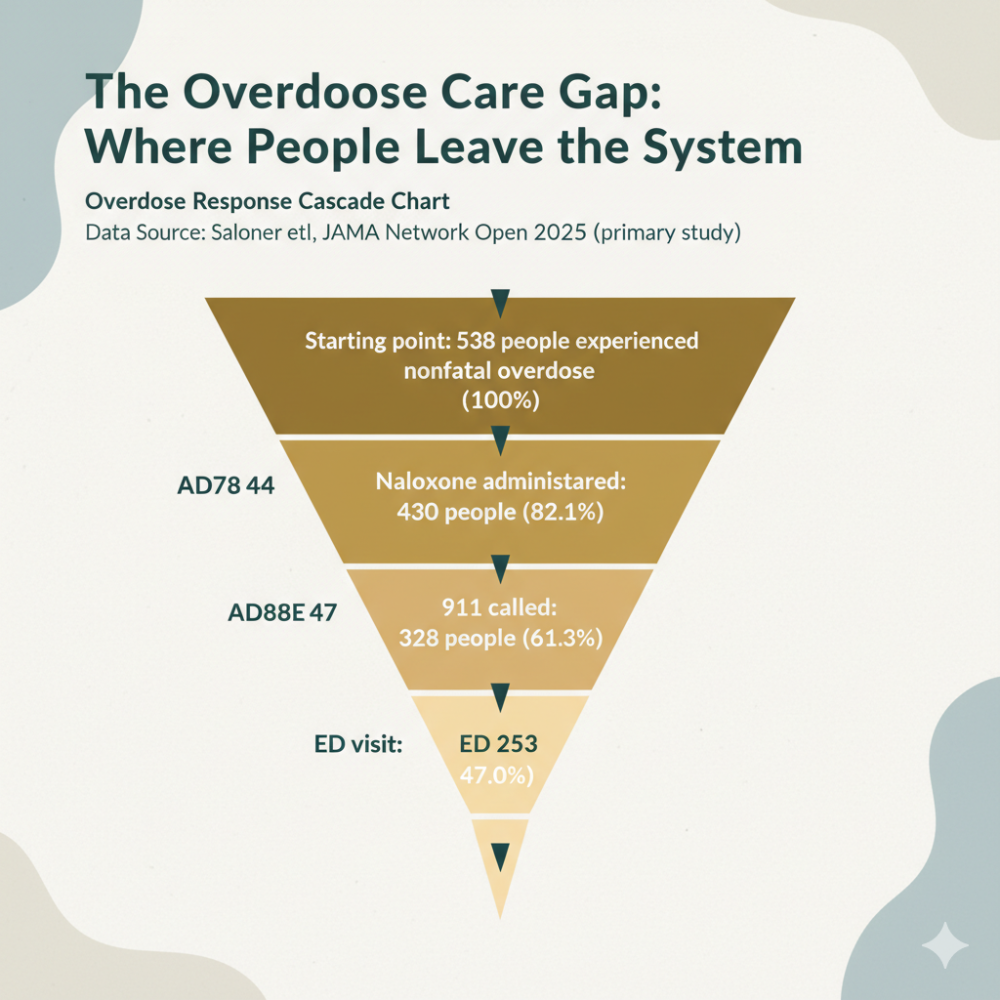Xanax and Ambien: Understanding the Interaction
Prescription drugs like Xanax and Ambien have offered relief to millions struggling with anxiety disorders and insomnia. Both Xanax, a type of benzodiazepine, and Ambien, a type of sedative-hypnotic, work by depressing the central nervous system, inducing a calming effect that aids in reducing anxiety and promoting sleep.
However, despite their therapeutic benefits, these medications have the potential for misuse. In addition to the risk of addiction, benzodiazepines like Xanax have been shown to actually worsen a person’s anxiety when taken for more than 4 weeks at a time. Despite their immediate benefits, people should avoid using these medications daily for extended periods of time. Xanax and Ambien misuse have the potential to lead to a myriad of health risks, especially when combined.
This article aims to illuminate the dangers of mixing Xanax and Ambien, diving into the risks associated with this drug combination and exploring the short-term and long-term effects of abusing these medications separately.
What is Xanax?
Xanax, also known by its generic name alprazolam, is a prescription medication often used to manage conditions like panic disorders and anxiety. Xanax is a type of drug known as a benzodiazepine, which acts on the central nervous system to produce calming effects.
Xanax works by enhancing the effects of a neurotransmitter called GABA in the brain. GABA inhibits brain activity, thus reducing feelings of anxiety and panic and inducing a sense of calm.
What is Ambien?
Ambien, or Zolpidem, is a prescription medication used to treat insomnia. It belongs to a class of drugs known as sedative-hypnotics, working by slowing activity in the brain to allow sleep.
Ambien works by interacting with GABA receptors in the brain as well, but it specifically targets GABA-A receptors, leading to sedation and helping individuals fall asleep.
Effects of Xanax Abuse
Xanax, though a beneficial medication when used correctly and under the supervision of a healthcare professional, can have harmful effects when misused or abused. These effects can be categorized into short-term and long-term consequences.
Short-Term Effects of Xanax Abuse
When Xanax is taken in higher doses than prescribed or without a prescription, the immediate or short-term effects can be quite severe. Xanax works by slowing down the brain’s activity, leading to a calming effect. However, when taken in excess, these effects can be exaggerated, leading to:
- Sedation: One of the immediate effects of Xanax abuse is heavy sedation, which can lead to excessive drowsiness and fatigue.
- Impaired Coordination: High doses of Xanax can significantly impair motor coordination, affecting a person’s ability to perform tasks that require concentration, like driving.
- Memory Problems: Xanax can affect a person’s ability to form new memories, leading to temporary amnesia or forgetfulness.
- Slurred Speech: High doses of Xanax can also affect speech, causing slurring or slow speech.
- Lowered Inhibitions: Much like alcohol, Xanax can lower inhibitions and lead to risky behavior.
Long-Term Effects of Xanax Abuse
Prolonged misuse of Xanax can lead to a variety of long-term health issues.
- Dependency and Addiction: Over time, the body can become accustomed to the presence of Xanax, leading to physical dependency. This means the body requires the drug to function normally, and without it, withdrawal symptoms occur. The cycle of tolerance, dependency, and withdrawal can often lead to addiction.
- Cognitive Impairment: Long-term Xanax abuse can lead to persistent cognitive deficits, affecting memory, attention, and cognitive speed.
- Psychiatric Disorders: Chronic misuse of Xanax can exacerbate or even induce psychiatric disorders, including depression, anxiety, and panic disorders.
- Physical Health Problems: Prolonged Xanax abuse can lead to physical health issues such as sexual dysfunction, severe constipation, and in extreme cases, seizures.
Remember, Xanax is a powerful medication that should only be used under the direct supervision of a healthcare professional. Misuse can lead to serious health problems. If you or someone you know is struggling with Xanax misuse or addiction, it’s crucial to seek professional help.
Effects of Ambien Abuse
Like Xanax, Ambien is a useful medication when used properly and under a healthcare professional’s guidance. However, misuse or abuse can lead to harmful short-term and long-term effects.
Short-Term Effects of Ambien Abuse
When Ambien is taken in higher doses than prescribed, without a prescription, or used in ways not instructed by a healthcare provider, it can produce immediate or short-term effects that include:
- Sedation: Overuse of Ambien can lead to excessive sedation, which can cause extreme drowsiness and a lack of energy.
- Impaired Coordination: Ambien can significantly impact motor coordination, resulting in clumsiness or unsteady movement, making tasks such as driving or operating machinery dangerous.
- Hallucinations: Some individuals may experience hallucinations or altered perceptions of reality when abusing Ambien.
- Anterograde Amnesia: Similar to Xanax, Ambien can impair memory, specifically the ability to form new memories.
- Unusual Behaviors: Some people who misuse Ambien have reported engaging in activities while they were not fully awake, like sleepwalking, sleep-eating, or even sleep-driving, and have no memory of these events afterward.
Long-Term Effects of Ambien Abuse
Chronic misuse of Ambien can lead to various long-term effects that can impact physical health, mental well-being, and overall quality of life.
- Dependency and Addiction: Prolonged Ambien use can lead to physical dependence, where the body requires the drug to function normally. This can easily develop into an addiction, where the desire to use the drug begins to control behaviors.
- Cognitive Impairment: Long-term Ambien abuse can contribute to persistent cognitive deficits, affecting memory, attention, and cognitive processing speed.
- Psychiatric Disorders: Chronic misuse of Ambien can exacerbate pre-existing psychiatric disorders or even induce new ones, such as depression, anxiety, and hallucinatory disorders.
- Physical Health Problems: Chronic Ambien misuse can lead to physical health issues, such as digestive problems, heart issues, and a weakened immune system.
Remember, Ambien, like any medication, should only be used under the guidance of a healthcare professional. Misuse can lead to serious health complications. If you or someone you know is struggling with Ambien misuse or addiction, seek professional help immediately.
Risks of Combining Xanax and Ambien
Combining Xanax and Ambien can be potentially dangerous due to their similar mechanisms of action on the central nervous system. The combined effects can lead to several severe consequences, including the following:
Intensified Side Effects
Both Xanax and Ambien can cause a range of side effects on their own, including dizziness, weakness, slurred speech, and memory problems. When used together, these side effects can be greatly magnified.
Effects on the Central Nervous System
As both drugs work on the central nervous system to slow down brain activity, their combined usage can excessively depress brain activity. This can lead to profound sedation and drowsiness. Such heavy sedation can impair coordination and motor function, leading to an increased risk of injuries from falls or accidents. Users may also experience impaired judgment and reduced cognitive function, making it dangerous to operate machinery or even drive a vehicle.
Increased Risk of Mental Health Issues
The combination of Xanax and Ambien can exacerbate mental health issues. While both medications are intended to reduce anxiety and promote sleep, misuse can lead to increased anxiety, bouts of insomnia, and episodes of depression.
Dependency and Addiction
Both Xanax and Ambien have the potential for physical dependence and addiction. Over time, the body may adapt to the presence of these drugs and require higher doses to achieve the same effect, a phenomenon known as tolerance. As a result, users may find themselves taking more and more of the drugs, accelerating the path to dependency.
The risk of dependency is particularly high for those who take these drugs in larger doses or for longer periods than prescribed. Dependency can lead to withdrawal symptoms when the drug use is stopped or reduced, including restlessness, insomnia, and, in severe cases, seizures.
Overdose Risks
Perhaps the most significant risk of combining Xanax and Ambien is the increased likelihood of an overdose. Both medications can depress the respiratory system, slowing breathing or making it shallow. This effect is amplified when both drugs are used together, potentially leading to a fatal overdose. Signs of an overdose can include severe drowsiness, confusion, weak reflexes, loss of consciousness, and in the worst cases, coma or death.
Remember, this combination of medications should always be avoided unless explicitly instructed by a healthcare professional who is aware of your medical history and current medications. If you’re struggling with the conditions these medications treat, it’s crucial to seek professional advice and explore safer, more effective treatment options.
Alternatives to Mixing Xanax and Ambien
Natural Sleep Aids
For those dealing with insomnia, natural sleep aids, like melatonin, or practicing good sleep hygiene might be beneficial. Cognitive-behavioral therapy is also an effective strategy for treating insomnia and anxiety.
Seeking Professional Help
If you’re struggling with anxiety or insomnia, it’s essential to seek professional help. A healthcare professional can provide safer, more effective treatment plans that don’t involve mixing potent prescription drugs.
While Xanax and Ambien are both effective medications when used separately and under a healthcare professional’s guidance, the dangers of combining these drugs are significant. Always consult with a healthcare provider before starting, stopping, or changing your medication regimen. If you need assistance in overcoming an addiction to benzodiazepines like Xanax, a professionally monitored Benzodiazepine Detox will ensure that you safely and comfortably overcome the symptoms of Xanax withdrawal.
Gallus Detox Can Help
In the world of prescription medication, understanding the potential risks is as crucial as acknowledging the benefits. Xanax and Ambien, while they can offer relief to individuals suffering from anxiety and insomnia, come with a set of serious risks when misused or combined. The side effects can range from immediate, such as drowsiness and impaired coordination, to long-term consequences, like dependency, cognitive impairment, and the exacerbation of psychiatric disorders.
If you or someone you know is grappling with Xanax or Ambien misuse or addiction, know that you are not alone and help is available. It’s crucial to reach out to professionals who can provide safe, effective, and empathetic treatment.
Gallus Detox is an addiction treatment center specializing in helping individuals recover from substance addiction, including Xanax and Ambien. Our team of highly trained professionals is committed to delivering personalized care to ensure your journey toward recovery is safe, comfortable, and effective. Don’t hesitate to reach out to Gallus Detox for assistance – you deserve a life free from the chains of addiction.
References:
- Alprazolam: MedlinePlus drug information. (n.d.). https://medlineplus.gov/druginfo/meds/a684001.html
- Moawad, H., MD. (2022). What is a Xanax addiction? Verywell Health. https://www.verywellhealth.com/xanax-addiction-5087537
- Johnson, B. (2013, August 15). Risks Associated with Long-Term Benzodiazepine Use. AAFP. https://www.aafp.org/pubs/afp/issues/2013/0815/p224.html
- Brandt, J., & Leong, C. (2017). Benzodiazepines and Z-Drugs: An updated review of major adverse outcomes reported on in epidemiologic research. Drugs in R & D, 17(4), 493–507. https://doi.org/10.1007/s40268-017-0207-7
- Ambien and Xanax interactions Checker. (n.d.). Drugs.com. https://www.drugs.com/drug-interactions/ambien-with-xanax-2333-1544-133-54.html
- Ulrich, A. (2021, August 26). 5 Zolpidem Interactions You Should Know About. GoodRX. https://www.goodrx.com/zolpidem/interactions
- Freedman, L. (2022, June 3). 5 alternatives to Ambien you may find helpful for sleep. Health. https://www.health.com/condition/sleep/tired-of-ambien-meet-the-sleep-medications-of-the-near-future
- Freedman, L. (2022, June 3). 5 alternatives to Ambien you may find helpful for sleep. Health. https://www.health.com/condition/sleep/tired-of-ambien-meet-the-sleep-medications-of-the-near-future
- Kaczkurkin, A. N., & Foa, E. B. (2015). Cognitive-behavioral therapy for anxiety disorders: an update on the empirical evidence. Dialogues in Clinical Neuroscience, 17(3), 337–346. https://doi.org/10.31887/dcns.2015.17.3/akaczkurkin
https://www.ncbi.nlm.nih.gov/pmc/articles/PMC4610618/


 Steve B
Steve B 
